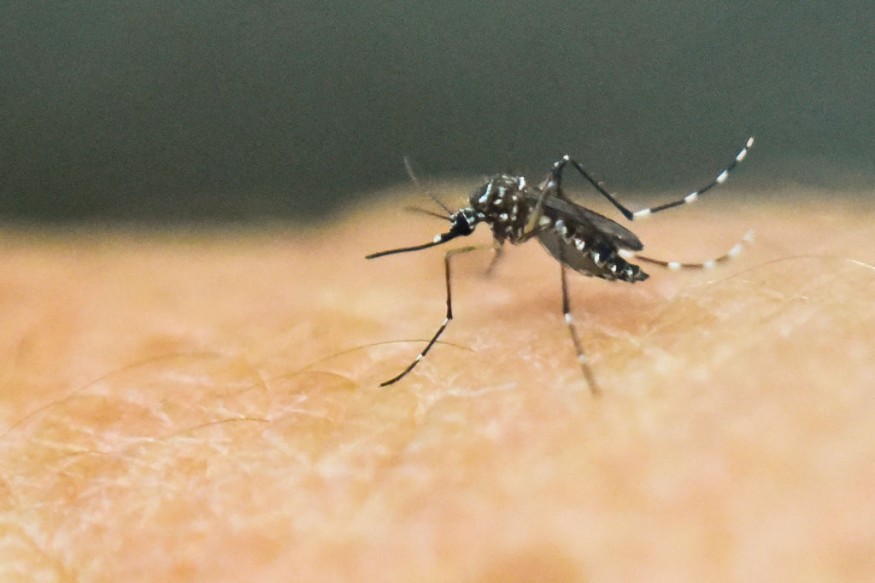Honduras Breeds 'Special Mosquitoes' To Combat Dengue

For many years, the fight against dengue fever in Honduras has centered around educating people on the importance of avoiding mosquito bites.
However, a more promising approach has emerged: breeding special mosquitoes to combat dengue, according to MM News.
In Honduras, scientists have developed these special mosquitoes, engineered to carry a bacteria called Wolbachia that disrupts disease transmission.
When these mosquitoes reproduce, they pass on the bacteria to their offspring, effectively reducing the likelihood of future dengue outbreaks.
This innovative strategy in the battle against dengue has been pioneered by the nonprofit organization known as the World Mosquito Program, and it is currently undergoing testing in more than a dozen countries.
Given that over half of the global population is at risk of contracting dengue, the World Health Organization is closely monitoring mosquito releases in Honduras and other locations, with plans to endorse this approach on a global scale.
Doctors Without Borders has partnered with the mosquito program in Honduras, where approximately 10,000 people fall ill with dengue each year.
Over the next six months, they aim to release nearly 9 million mosquitoes carrying the Wolbachia bacteria.
READ NEXT : Honduras Planning for New Prison Island
A Unique Way to Fight Dengue
Dengue is a mosquito-borne disease, and despite significant progress in combating diseases like malaria, dengue infection rates continue to rise.
It is estimated that around 400 million people across 130 countries contract dengue each year, VOA noted.
While dengue's mortality rates are relatively low, at approximately 40,000 deaths annually, outbreaks can strain healthcare systems and disrupt daily life for many, causing missed work or school.
Traditional methods of preventing mosquito-borne illnesses have proven less effective against dengue.
The Aedes aegypti mosquitoes, dengue's primary carriers, have developed insecticide resistance. Additionally, four different forms of the dengue virus make it challenging to control through vaccines.
Aedes aegypti mosquitoes are particularly formidable because they are active daily, making bed nets less effective.
Their preference for warm, wet environments and dense urban areas means climate change and urbanization will likely exacerbate the dengue problem.
Raman Velayudhan, a researcher from the WHO's Global Neglected Tropical Diseases Program, stressed the need for better tools to combat dengue and hailed Wolbachia as a long-term and sustainable solution.
Honduras Special Mosquitoes
Many of the Wolbachia-infected mosquitoes used in this initiative are bred in Medellín, Colombia, operated by the World Mosquito Program, producing a staggering 30 million of these mosquitoes weekly, AP reports.
The facility imports dried mosquito eggs from various regions to ensure that the mosquitoes released possess characteristics like the local mosquito populations, such as insecticide resistance.
These dried eggs are placed in water with powdered food. Once they hatch, they can mate with the "mother colony," a lineage carrying Wolbachia, primarily consisting of females.
The facility meticulously cares for these mosquitoes, providing males with sugared water and females with human blood kept at 97 degrees Fahrenheit (37 degrees Celsius) to encourage breeding.
Marlene Salazar, the facility's coordinator, ensures optimal conditions for their development.
Once it's confirmed that these new mosquitoes carry Wolbachia, their eggs are dried and placed in capsule-like containers for transport to release sites.
In Honduras, Doctors Without Borders has engaged in a door-to-door campaign in a hilly neighborhood of Tegucigalpa. They sought residents' assistance in incubating mosquito eggs bred in the Medellín facility.
Residents agreed to hang glass jars containing water and mosquito egg-filled capsules from tree branches. After approximately 10 days, the mosquitoes would hatch and take flight.
On the same day, a team from Doctors Without Borders deployed across Northern Tegucigalpa on motorcycles, carrying jars of the already-hatched mosquitoes.
They released thousands of these dengue-fighting mosquitoes into the air at designated locations.
READ MORE : Brazil Plane Crash Kills 14
This article is owned by Latin Post.
Written by: Bert Hoover
WATCH: Honduras fights dengue with more mosquitoes - From Associated Press
Subscribe to Latin Post!
Sign up for our free newsletter for the Latest coverage!















